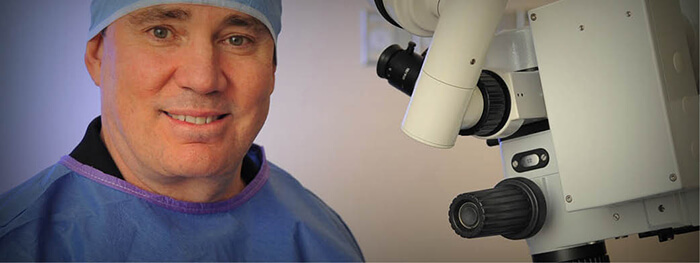
Your cornea is the clear layer of tissue covering the front of your eye. It refracts, or bends, light rays as they enter the eye so they are focused on the retina. If your cornea has become clouded or damaged as a result of disease, swelling, infection or injury, it may need specialized treatment, sometimes involving a Corneal Transplant.
A Corneal Transplant (or Keratoplasty) is often used to restore functional vision. During a corneal transplant procedure, a corneal specialist carefully removes the central corneal tissue and replaces it with a precisely shaped graft of donor tissue. This procedure is successful approximately 85% of the time, depending on other factors, such as glaucoma, retinal damage, or optic nerve damage.
A corneal transplant is an outpatient procedure and typically takes about an hour. A local anesthesia is used to ensure the patient does not feel any pain. After the procedure, the patient must wear a plastic shield or glasses at all times to avoid any contact to the eye until the transplant tissue permanently takes as well as using specially prescribed eye drops to aid the healing process.
Time for recovery can vary greatly between patients, with some requiring up to a year depending on the procedure recommended.
Symptoms of Pterygium and treatment in Orlando
A pterygium is a triangular-shaped growth on the conjunctiva (the clear membrane that covers the front of the eye and lines the inside of the eyelids). It can cause irritation, redness, and tearing. Pterygiums are often caused by exposure to the sun and windy environments. When detected early, they may be treated with eye protection, artificial tears, or medicated drops. In later stages, a pterygium can grow over the central cornea and affect vision, even changing the shape of the cornea causing astigmatism. In such cases, surgery may be required to remove the pterygium.
If you have been diagnosed with a disease involving the cornea, you will likely be referred to a Corneal Specialist. Contact Magruder Eye Institute today to schedule an appointment with one of our Corneal Specialists.









